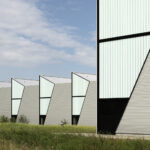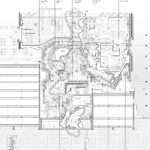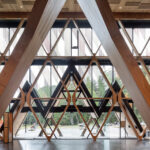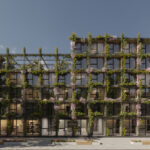This March is turning out to be a splendid month for Thomas Heatherwick Studio. Just a week after the firm unveiled its ambitious plans for a super-green Googleplex in collaboration with BIG, one of its largest projects to date has now been completed in Singapore: The Learning Hub is a cluster of 12 sculpted towers, designed to house an array of academic facilities for some of Nanyang Technological University’s 33,000 students.

Recognizing the changing behavior of students and a paradigm shift in knowledge-sharing following the advent of the Internet, Heatherwick sought to create a university building reflecting a new era of collaborative education. The building is configured specifically to “foster togetherness and sociability”, with a dozen permeable towers opening onto a central atrium designed to act as an informal gathering space. Every classroom faces onto this open core, providing a visual and psychological sense of connectivity between the spaces.

Heatherwick has further defied convention within the towers by moving away from orthodox, forward-facing classrooms and lecture theaters. Instead, the internal layout comprises a series of “corner-less” tutorial spaces, where students work together around shared tables and the teacher acts as “facilitator and partner in the voyage of learning.”

Despite experimenting with program and layout, Heatherwick’s trademark aesthetic of urban greenery remains strong throughout. Gardens are situated all the way up the building, and an oasis sprouts from the top of each tower, transforming them into a cluster of enormous sculpted plant pots. The original renders show much more luscious explosions of planting emanating from every crevice, but Heatherwick will hope that, in time, the completed gardens will mature in a similar fashion.

Local building codes dictated that the building had to be constructed from concrete, which may have proved to be a hindrance for some — but not Heatherwick. The British architect relished the challenge of creating beauty from this elementary material. The external stacks of concrete rings will not be to everybody’s taste: while it is tempting to draw comparisons to a 1970s multi-story car park, a more positive analogy seems equitable: sedimentary rock formations, or a cluster of cairns perhaps.
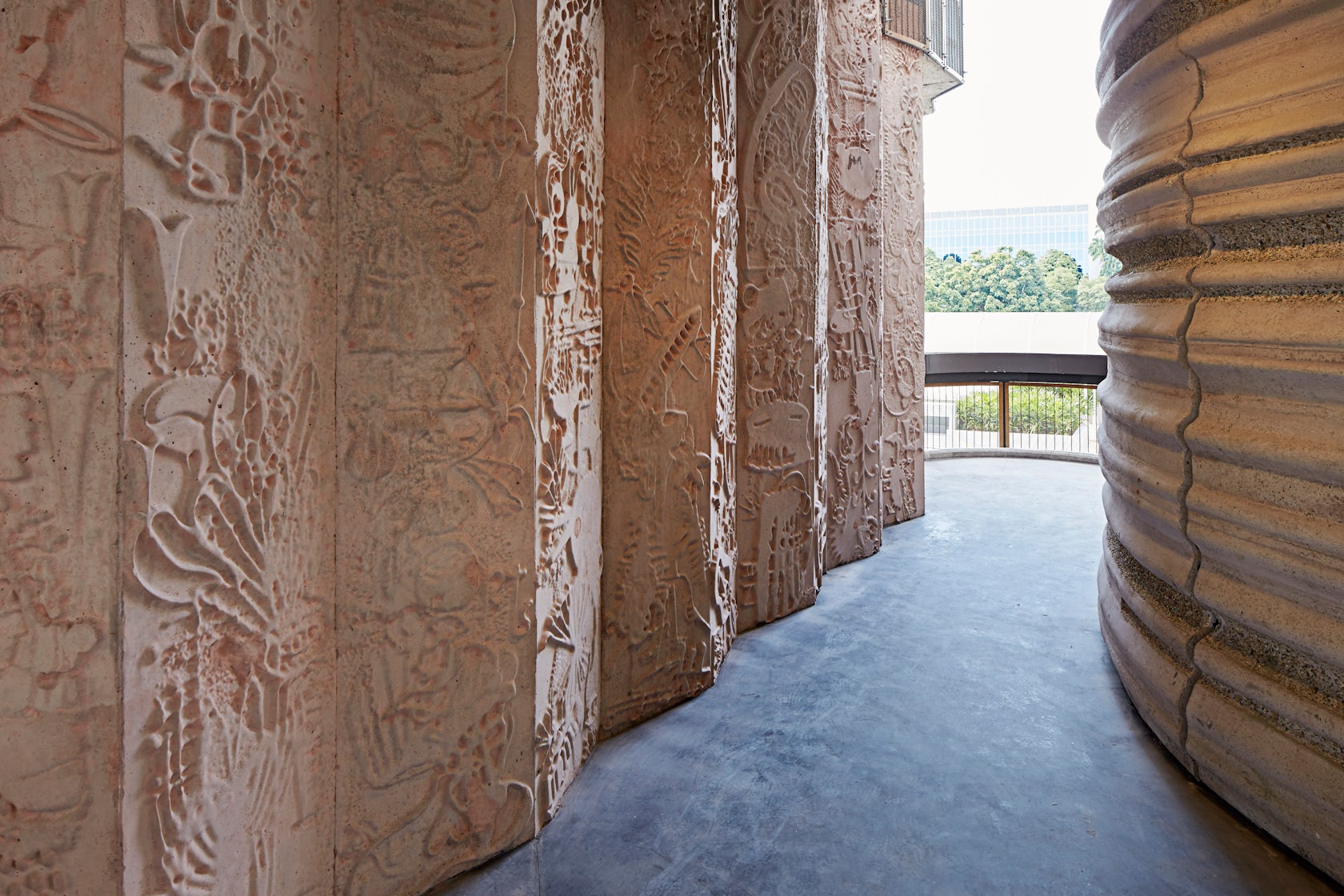
On the interior, the walls of the stair and lift cores display a beautiful embossed patina of drawings, commissioned from illustrator Sara Fanelli. The 700 intertwined artworks are intended to act as a continuous, subconscious source of inspiration for students, portraying an array of imagery from literature to art to science. These details lend the building a bespoke quality, akin to a collection of handmade clay vessels that have been baked solid in the heat of the equatorial sun.

It is the firm’s first major building in Asia, and Heatherwick could be forgiven for finding such a transition challenging given the complex environmental conditions in tropical Southeast Asia. However, the architect appears to have taken the climate in his stride: The open tiers of each tower provide for substantial passive ventilation, using silent convection to negate the need for loud and energy-hungry air-conditioning systems.

The curving terraces — supported by unusual bowed columns — provide ample shading for the internal spaces, which strive to echo the environments of Louis Kahn’s brilliant arcades in Bangladesh and India. Furthermore, the concertinaed panels are glazing are fitted with mesh blinds, reducing glare and heat gain throughout the interior.
Following the success of numerous small projects, the Learning Hub provides compelling evidence of Heatherwick’s ability to work on a larger scale, and provides a strong educational branch to the firm’s increasingly diverse portfolio. Of course, true judgement of the Hub’s credentials must be reserved until its students have tested its functionality over an extended period — but for now, these tropical towers look like an ideal setting for the next generation of innovators in Singapore.
Yours knowledgeably,
All images © Hufton and Crow

